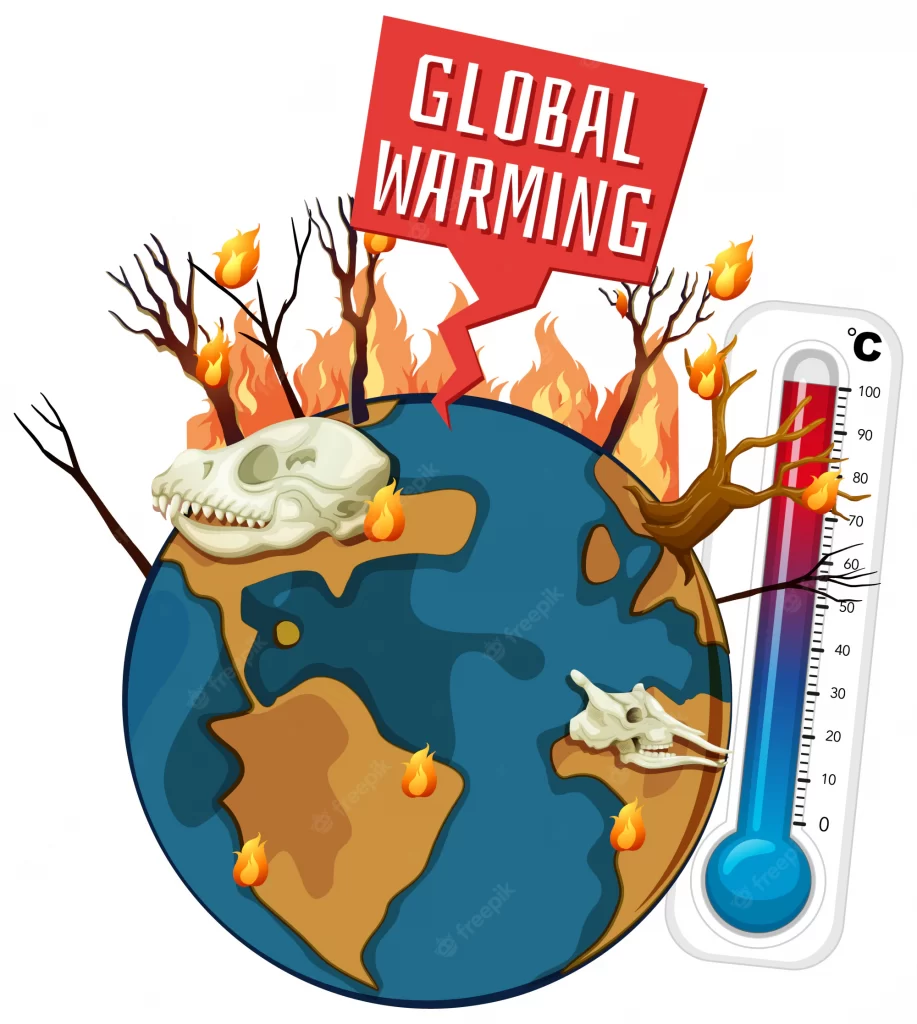One of the most pressing issues of our time is global warming, which is primarily a result of human activity. Its effects are far-reaching and impact various aspects of our planet, including tropical countries. For instance, tropical countries such as India and Pakistan have experienced more frequent and intense heat waves due to global warming, leading to widespread heat-related illnesses and even deaths. Moreover, these regions have witnessed an increase in the frequency and intensity of hurricanes and cyclones. In 2017, the Atlantic hurricane season brought powerful storms like Hurricane Harvey, causing devastating flooding in parts of the Caribbean and the United States. Rising sea levels pose a significant threat to tropical coastal regions, as seen in small island nations like the Maldives and Tuvalu, where the risk of losing land and being displaced by encroaching waters is a stark reality. Coastal cities like Jakarta, Indonesia, are already grappling with increased flooding and infrastructure damage. Global warming also has profound implications for tropical ecosystems. Coral bleaching, a consequence of rising ocean temperatures, has resulted in the widespread loss of vibrant coral reefs, including the Great Barrier Reef in Australia and reefs in the Caribbean. The Amazon rainforest, a vital tropical ecosystem, has experienced increased deforestation and degradation due to climate change-induced droughts and fires. Agriculture, a crucial sector for tropical countries, is being severely impacted by global warming. Prolonged droughts and extreme rainfall events disrupt crop yields, leading to food shortages and exacerbating food insecurity and poverty in regions like Sub-Saharan Africa. Additionally, changing climate patterns create favorable conditions for the spread of vector-borne diseases such as malaria, dengue fever, and Zika virus in tropical regions, straining healthcare systems and posing significant health risks. These real examples demonstrate the urgent need for action to mitigate climate change and support adaptation efforts in tropical countries facing the tangible impacts of global warming.
In this review, we will explore the implications of global warming specifically on tropical regions, highlighting the environmental, social, and economic consequences these countries face.
Escalating Temperatures and Extreme Weather Events:
The rising temperatures in tropical countries due to global warming are a cause for alarm. Heatwaves have become more frequent and intense, pushing ecosystems, human health, and agriculture to their limits. The vulnerable populations in these regions suffer immensely, with increased risks of heat-related illnesses and even death. Moreover, the surge in extreme weather events such as hurricanes and cyclones poses a constant threat to lives, livelihoods, and infrastructure.
Sea Level Rise and Coastal Devastation:
The rising sea levels resulting from global warming present a looming catastrophe for tropical coastal communities. Low-lying areas and densely populated cities face the imminent risk of displacement and loss of habitable land. As ocean waters encroach on coastlines, the damage extends beyond immediate flooding, leading to saltwater intrusion, coastal erosion, and destruction of vital ecosystems. Urgent measures are required to protect vulnerable coastal regions and ensure the survival of affected communities.
Loss of Biodiversity and Ecological Disruption:
The unparalleled biodiversity of tropical regions is at stake due to global warming. Ecosystems are being disrupted, leading to habitat loss and endangering countless plant and animal species. Coral bleaching events, a direct consequence of warming oceans, are decimating fragile marine ecosystems. The irreversible loss of biodiversity not only threatens the beauty and uniqueness of these regions but also undermines crucial ecosystem services that sustain life on Earth.
Agriculture and Food Insecurity:
Global warming’s impact on agriculture in tropical countries cannot be understated. Erratic rainfall patterns, prolonged droughts, and intense rainfall events disrupt crop yields and jeopardize food security. Small-scale farmers, who form the backbone of many tropical economies, bear the brunt of these challenges. Without immediate action, we face the grim prospect of food shortages, escalating prices, and increasing poverty in already vulnerable communities.
Health Crisis and Strained Healthcare Systems:
The health risks associated with global warming in tropical countries are deeply concerning. Rising temperatures create ideal breeding grounds for disease-carrying vectors like mosquitoes, leading to the spread of deadly illnesses such as malaria, dengue fever, and Zika virus. Heatwaves and worsening air quality also contribute to respiratory problems and heat-related ailments. The already burdened healthcare systems in these regions struggle to cope with the escalating climate-related health crises.
Conclusion: The impact of global warming on tropical countries demands immediate action and international collaboration. We must acknowledge our responsibility in causing this crisis and take proactive steps to mitigate further climate change. Transitioning to renewable energy sources, implementing sustainable practices, and investing in climate resilience measures are imperative. By prioritizing the preservation of tropical regions, we can secure a sustainable future for both the affected communities and the entire planet. Let us act swiftly to combat global warming and protect the invaluable treasures that tropical countries hold.

